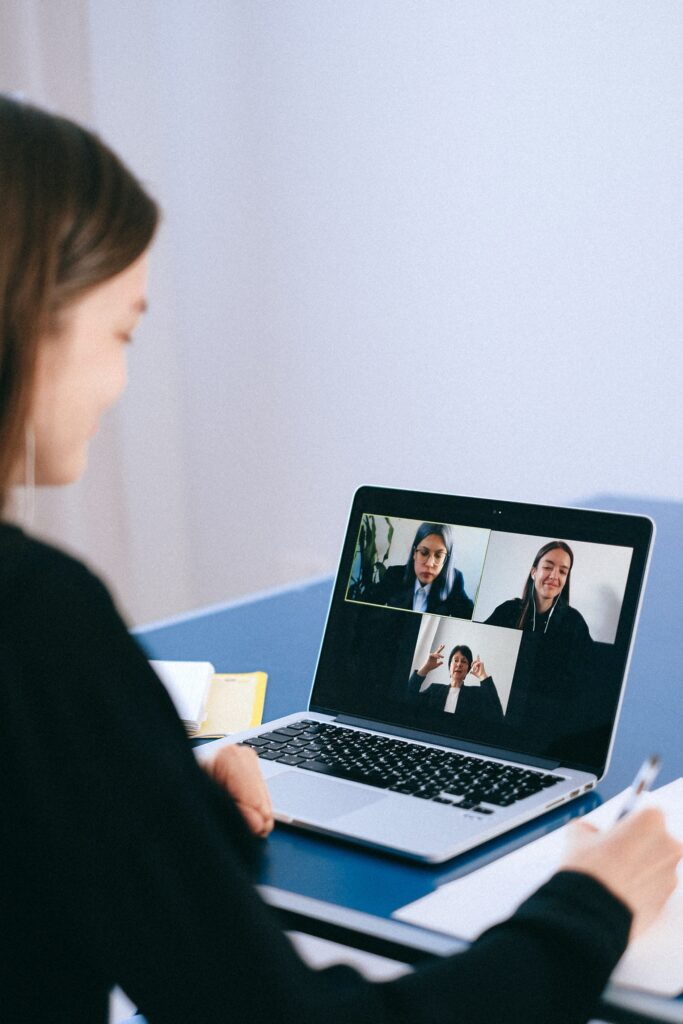In March 2020, the UK government issued advice to all schools, colleges and universities that they should immediately stop face to face teaching and research activity due to concerns about the spread of COVID-19 throughout the UK. This sudden move to digital provision of teaching was challenging for all university staff and students. At Leeds Beckett, we are used to the buzz of lots of students moving round the campus, the opportunity to meet staff around the water cooler and teaching face to face in either large lecture halls or small tutorials with our students physically in the same space as us.

Suddenly everyone was isolated at home, meeting only digitally through their laptops whilst juggling wifi connection sharing with other members of the family working from home and the responsibility for supervising schoolwork for the young members of the family.

The IT department became one of the busiest departments in the organisation as everyone learnt to work exclusively online. Having now spent almost 14 months working in this way, the benefits and disadvantages to our working lives have become apparent to all. For those staff who were engaged in international research projects, the opportunity to join project meetings remotely has meant less time sitting waiting for planes in airports round the world. Having to teach online has pushed many university staff to engage in new pedagogies making learning more accessible for many students. There are even benefits accrued as the daily commute has been reduced to moving from the kitchen to the spare bedroom rather than spending hours in traffic jams.

However, the disadvantages are also visible to all. Whilst online meetings within international research consortia are beneficial for procedural matters, it is more challenging to be creative when we are not in the same room together.
Online teaching can provide students the opportunity to work through the syllabus of a course but it is more challenging for university staff to pick up small signals when a student is struggling with their studies and provide that quiet word of support. Most of all, we are all missing the human contact – the cheery wave, the chat about the weekend as the kettle boils in the staffroom or the smile to students as we meet in the corridor.
Running research activities like focus groups or interviews is also challenging: instead of getting together in a comfortable space that invites conversation and collaboration, we had to think of other ways to re-create these situations online.
The digital environment has provided us with opportunities to continue to maintain contact during the global pandemic but it will never replace face to face contact. The global pandemic has taught us the valuable lesson that as humans we need this physical interaction in our work as much as in our personal lives.
Mhairi Beaton & Marc Fabri from Leeds Beckett University.

